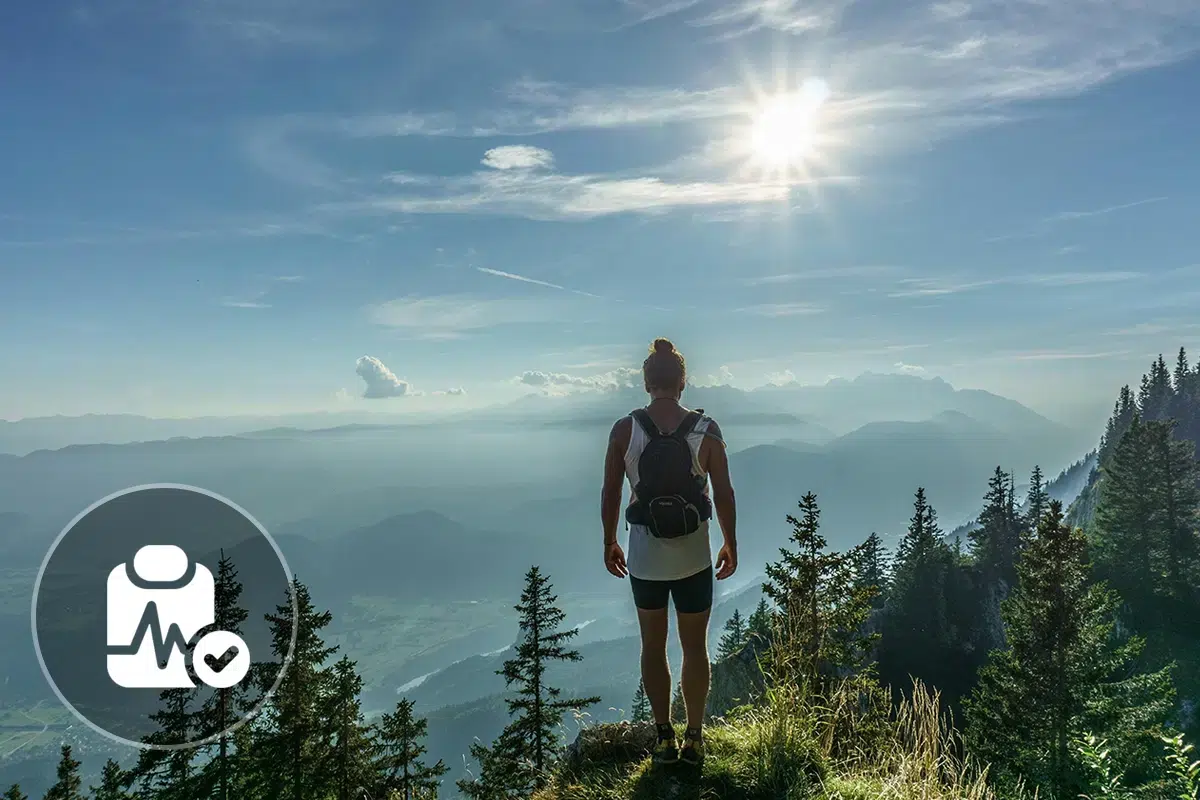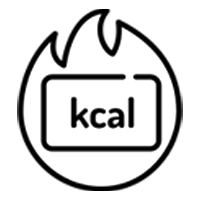Show summary Hide summary
- What are the health benefits of hiking and trekking?
- More information on hiking
- TOP 6 health benefits of hiking!
- What are the disadvantages and contraindications of hiking?
- Information and practical advice on hiking!
- Other outdoor and nature sports: explore nature while staying active with outdoor sports
- Discover the health benefits of other sports!
What are the health benefits of hiking and trekking?

All you need to know about hiking
What are the health benefits of hiking and trekking? Use the tool below to find out all the benefits of hiking and trekking and discover whether this activity meets your goals and expectations.
More information on hiking
Is hiking good for your health? Is it a good sport that’s accessible to everyone? Whether you’re a beginner or an experienced hiker, you’ll find a list below of the benefits and problems you may encounter when hiking.

TOP 6 health benefits of hiking!
Hiking is a discipline in its own right. Beneficial both physically and mentally, it allows hikers to :
- Hiking strengthens muscles and increases bone density
- Hiking strengthens the immune system
- Hiking helps to improve cardiovascular activity, breathing and endurance
- Hiking allows you to get away from it all, awaken your senses and recharge your batteries
- Hiking lets you enjoy the benefits of daylight
- Hiking helps maintain vitamin D levels, particularly in winter
What are the disadvantages and contraindications of hiking?
Unlike running, hiking is a gentle activity that is less prone to trauma and injury. So there are very few disadvantages to hiking. However, you should always listen to your body and stop walking when you need to. If you have any doubts about your physical condition, don’t hesitate to seek medical advice. When walking a long distance, it is quite normal to wake up the next day with aches and cramps. Hence the importance of staying well hydrated throughout the walk and not forgetting to stretch at the end of each stage.
Information and practical advice on hiking!
Who can go hiking?
Accessible to all, hiking is an outdoor sport that allows you to walk a generally signposted route. Unlike ordinary walking or fitness walking, which are done over shorter or longer distances, hiking requires a long walk. From beautiful mountain walks to cosy moonlit nights, hiking is becoming increasingly popular with people of all ages.
When and how to go hiking?
Simple and fun, hiking is best done in small groups (couples, families or friends). Like Nordic walking, hikers use poles. These poles (telescopic or fixed) help to stabilise you on ascents and descents and reduce the risk of bumps or sprains.
To reap the full benefits of hiking, remember to :
- keep a straight spine posture
- keep your shoulders and arms relaxed
- roll your feet naturally from heel to toe
- breathe naturally
- wear a good pair of comfortable hiking boots that will protect your heel while allowing your foot to roll naturally.
Other outdoor and nature sports: explore nature while staying active with outdoor sports
Outdoor sports are perfect for those who enjoy combining physical activity with nature. They offer an excellent opportunity to discover new landscapes while improving your physical fitness. Explore these outdoor sports to enjoy the great outdoors while training:
- Horse riding: Develop balance and connection with horses during a horseback ride.
- Mountain biking: Improve agility and endurance on varied terrain with mountain biking.
- Nordic walking: Strengthen your upper body while improving endurance with Nordic walking.
- Power walking: Burn calories and improve cardiovascular health with brisk walking.
- Running: Increase endurance and overall well-being with running.
- Walking: Maintain health and improve fitness with daily walks.
- Cycling : Enhance fitness and cardiovascular health with regular cycling
All you need to know about hiking
Discover the health benefits of other sports!
All sports in detail!




















































